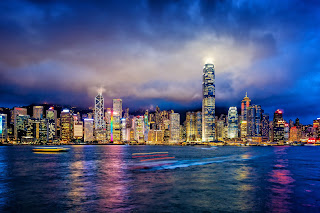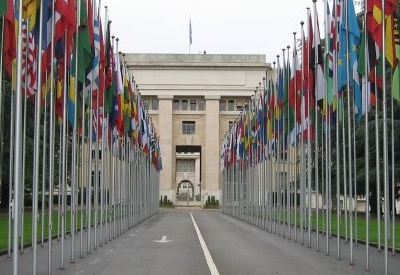Hongkongers in a position of strength for the short term
 |
| storm clouds over Hong Kong |
The central government know the international community is fixated on it due to the leftover malaise from the Tiananmen debacle-- kind of China's holocaust. The protestors are emboldened now because they know the clock is ticking towards 2047 when China assumes full control over Hong Kong, and they - the protestors, will be too old to put up this kind of struggle, they will be settled with families of their own, or they could have simply migrated away from South East Asia to avoid the carnage that an authoritarian central government will bring to the city.
Herein lies the crux of the problem: the Chinese authorities have a new Ferrari to test drive in the form of Hong Kong and cannot let her go past 50 km per hour without feeling any heat. So, they do what governments do best and try to infiltrate the system to meet their goals. In democracies we might call this gerrymandering as it relates to specific electoral boundaries, never-mind, hard-boilded ethical issues such as freedom of speech, a fair judiciary, and universal suffrage. In Hong Kong, and despite Xi Jinping's war on the graft, it is a subversive attempt to shut down freedom of speech, or, at least, those dissenting voices that oppose the government.
Hong Kong offers little to boost China's coffers as it contributes 2.7% to China's economy- currently, as opposed to 18.4% in 1997 at the time of the transfer from Britain, according to a Reuters report by Noah Sin on September 4 2019. Moreover, Chinese banks hold more than 1.1 trillion in assets in Hong Kong, which is about 9% of China's GDP, following the same report. Therefore, at first blush, Hong Kong has dropped as a source of wealth for the mainland, though, with China's banks retaining this scope of wealth, Hong Kong is a vital investment hub for the mainland and one pillar, albeit a fairly large one, in their crown that adorns the Belt & Road Initiative (BRI) neon sign. Hong Kong can provide the litmus for the central government to expand lending capacity in coordination with BRI to bolster trade and FDI.
The central government, not one to curry favour to any one group, individual, or government beyond a specific need, (and what government does not in this age of trade associations), will need to ameliorate some of the protesters concerns to keep the taps flowing into the mainland during a painful trade war with the United States. Any semblance of a Tiananmen - like debacle will send nation - states moving away from the mainland en masse and crippling China's teetering economy. And, in that instance, Xi can forget about any hopes of unifying Taiwan with the mainland. In the meantime, Tibet simmers as the building boom continues on the rooftop of the world, with serious ecological implications. Tibetans need to be remembered in all of this, as a form of apartheid continues on the Tibetan Plateau. Hong Kong may well be awaiting a similar fate in 2047. So, understand the protesters concerns.




